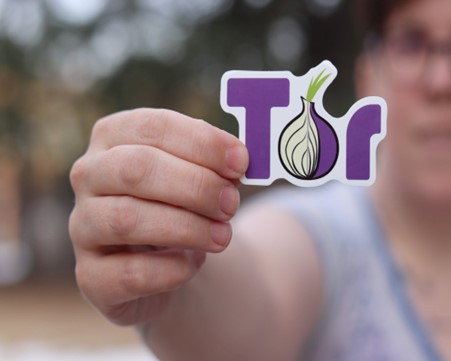Last Updated on: 22nd November 2023, 12:21 am
The health of workers should be high on an employer’s list of priorities. There has been a lot of media attention surrounding vitamin D in recent times — but what exactly is it, and how does it benefit the body? Pharma Nord explains more:
Vitamin D: an overview
Vitamin D is essential for human health. It is a fat-soluble nutrient that works by boosting our immune system, muscle function and bone health. Though it’s naturally found in fish, butter and eggs, the average dietary intake from foods (in the UK) is around 126iu per day, which for most people is entirely inadequate.
The main way we get vitamin D is through the sun. The body produces vitamin D from cholesterol, provided there is an adequate amount of UVB light from sun exposure. There are a wide range of factors which can limit this synthesis though, including:
- Age — our ability to convert vitamin D from sun exposure declines as we get older.
- Season and latitude — those living in darker places, including the UK, experience less sunlight, particularly through autumn and winter.
- Skin pigmentation — those with darker skin need more sun exposure than those with lighter skin to produce the same amount of vitamin D.
- Regular use of sunscreen — UV rays can be blocked by sunscreen, reducing vitamin D synthesis.
- Sun avoidance — some medications can cause photo-sensitivity.
- Covering up for religious reasons.
Suprisingly, most people are not deficient in vitamin D; rather, they simply have insufficient levels. Without optimum vitamin D levels, the full health benefits cannot be attained, so many turn to vitamin D supplements.
The role of vitamin D
Regardless of how it enters your body, once in the bloodstream, vitamin D is transported to the liver in the form of calcidiol and is stored for future use. This calcidiol is then sent to kidneys where it is turned into calcitriol, then sent to different tissues all over the body.
Calcitriol performs two core roles; managing calcium in the blood, bones and digestive system, and helping cells grow, communicate and express genes. It has long been linked to having a positive impact on immunity too.
Cancer
Daily doses of vitamin D3 could lower the risk of colorectal cancer with minimal risk, a meta-analysis by The American Journal of Preventative Medicine’s found. This was based on an investigation of over 1,400 subjects.
Colds & flu
Many people believe that vitamin D can prevent colds and flu. A meta-analysis published in the British Medical Journal found that vitamin D, when taken either daily or weekly, can protect against respiratory chest infections — including colds, flu and pneumonia — but not in one-off doses. As well as offering protective effects, vitamin D can shorten the duration of colds and flu should they occur.
Falls
While lower doses were proven to be ineffective, a meta-analysis by The British Medical Journal also found that the risk of falling and fracture in 65+ year olds was reduced by 29% when vitamin D doses of at least 700iu -1000iu were present.
Depression
Helping to protect neurones and assist in their maintenance, vitamin D has shown to have a positive effect on mental health. In a randomised, double-blind control trial, vitamin D supplementation was shown to reduce depressive symptoms associated with major depressive disorder (MDD).
Vitamin D dosage
Recently, there has been continued discussion around the amount of vitamin D we need. This is because there are many factors that could affect an individual’s vitamin D status.
However, a recommendation from the Scientific Advisory Committee on Nutrition (SACN) advises that everyone should take at least 10μg/400iu of vitamin D in autumn and winter months per day. As the government recommendation, this is considered enough to prevent deficiency in most people, but many experts agree that it is an insufficient recommendation for most people.
Vitamin D supplements
D2 and D3 are two types of Vitamin D supplements. D3 (cholecalciferol) is the isomer formed in human skin, and is typically extracted from sheep’s wool for supplements. D2 (ergocalciferol) is the plant-derived equivalent, typically extracted from fungi.
In many cases, D3 is usually thought to be the best way to supplement with vitamin D. Compared to the D2 counterpart, D3 tends to be less toxic. It easily binds with D receptors in human tissue and is more stable and effective at raising serum D levels. It is the most common vitamin D type researched in modern nutrition science.
Sources:
1. Martineau A, Jolliffe D, Hooper R, Greenberg L, Aloia J, Bergman P et al. Vitamin D supplementation to prevent acute respiratory tract infections: systematic review and meta-analysis of individual participant data. 2017.
2. Bischoff-Ferrari H, Dawson-Hughes B, Staehelin H, Orav J, Stuck A, Theiler R et al. Fall prevention with supplemental and active forms of vitamin D: a meta-analysis of randomised controlled trials. BMJ. 2009;339(oct01 1):b3692-b3692.
3.Gorham E, Garland C, Garland F, Grant W, Mohr S, Lipkin M, Newmark H, Giovannucci E, Wei M, Holick M. Optimal vitamin D status for colorectal cancer prevention: A quantitative meta analysis. American journal of preventive medicine. 2007 Feb 14 [cited 2017 Feb 7];32(3):210–6. Available from: https://www.ncbi.nlm.nih.gov/pubmed/17296473.
4. Sepehrmanesh Z, Kolahdooz F, Abedi F, Mazroii N, Assarian A, Asemi Z, Esmaillzadeh A. Vitamin D Supplementation affects the Beck depression inventory, insulin resistance, and Biomarkers of Oxidative stress in patients with Major Depressive disorder: A Randomized, controlled clinical trial. The Journal of nutrition. 2015 Nov 27 [cited 2017 Feb 7];146(2):243–8. Available from: https://www.ncbi.nlm.nih.gov/pubmed/26609167.
5. BA W. The vitamin D questions: how much do you need and how should you get it? – PubMed – NCBI [Internet]. Ncbi.nlm.nih.gov. 2017 [cited 8 March 2017].



